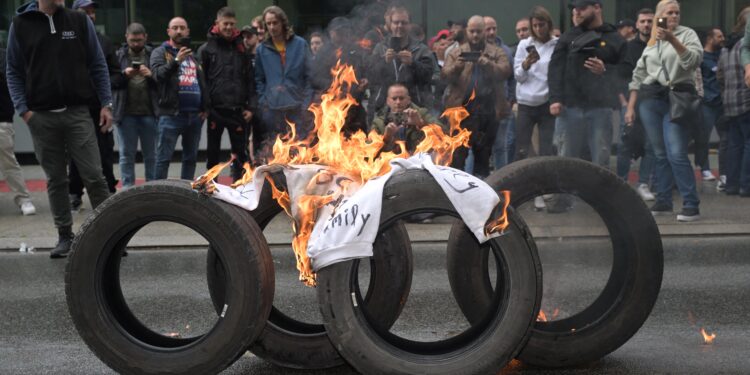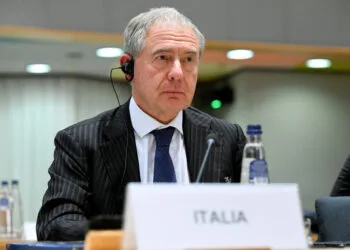Brussels – It is a hot week for the German automotive industry. Following Volkswagen’s announcements in Germany, Audi in Brussels has also decided that it will shut down on February 28, 2025. Until the actual shutdown, workers will not be laid off. Yet, it is another blow to the German automotive industry.
Audi is part of the Volkswagen Group and the decision was made yesterday (Oct. 29), as L’Echo reports, after an extraordinary works council. It fits into the downward spiral plaguing the German automotive sector, which just this week already saw the parent company announce the closure of at least three factories in Germany.
In February 2024, the management of the Belgian plant confirmed that the new Audi Q8 e-tron ( the new electric car model) would no longer be produced in Brussels, three years earlier than the announcement regarding relocating production to Mexico, to reduce costs and be closer to the US market.
Contrary to what one might believe, the announcement of closure at the end of next February surprised workers. The risk had become evident since July of this year, when the Volkswagen Group announced that it wanted to renovate its Audi Brussels site, initiating the so-called Renault Procedure, which in Belgian law means preparing for collective redundancies, which would have involved nearly half of the 3,000 employees in the Belgian subsidiary.

After the summer, unions did not give up, keeping tensions high with internal plant protests, until they reached an agreement with Audi Brussels management. In the end, the heaviest price is for the workers. Regarding the conditions of the layoffs, confidential negotiations are underway, regarding a “possible social plan,” as Peter D’hoore, Head of External Communication at Audi Brussels, defined it.
The last hope was to find a buyer to prevent a shutdown. So far, Audi Brussels has struggled to attract investors, although management has suggested there could be updates to assess at the upcoming work council meeting. The only (vague) statement on the subject comes from D’hoore: “The working group on alternative business models is continuing at the same time (as the site closure procedures, ed.),” but for now, there are no further details regarding changes in the situation.
Volkswagen wants to cut the dead weight of electric vehicle production. It is slashing German and Belgian production, which are not as profitable as they should be. For Brussels, the site’s issues are also “long-standing structural” problems, making it difficult to change the production configuration.
“This calculation cannot work in the long run,” said Thomas Schaeffer, CEO of the Volkswagen brand on Monday. The German giant is making some challenging decisions, which testify to the great crisis the automotive market in Germany is experiencing. This sector, however, has considerable significance for German production as a whole, making a significant contribution to building the country’s export position, which has entered into a phase of sharp contraction this year, however.
In Italy, meanwhile, there are tensions between government and business over cuts to the sector. “The government has cut 4.6 billion from the Automotive Fund, earmarked for the adoption of measures to support the reconversion of the supply chain,” writes ANFIA (the Association of companies in the automotive supply chain). The Minister of Enterprise and Made in Italy Adolfo Urso tried to calm the tension, saying that “all resources will go to the productive investments with particular attention to components, which is the real strength of Made in Italy.”
However, Urso’s position fails to convince, especially at a time of transition when everyone involved in the manufacturing supply chain, from workers to entrepreneurs, needs a balance between Italy’s commitment in the EU to the green transition and support for its businesses. We are talking about a manufacturing sector that employs over 270,000 direct employees and a turnover of more than 100 billion euros. “It is the only sector that is required to make a compulsory historical transformation in a few years,” Anfia added, an element that is clearly causing problems not only for Italy, but for all European auto industries.










